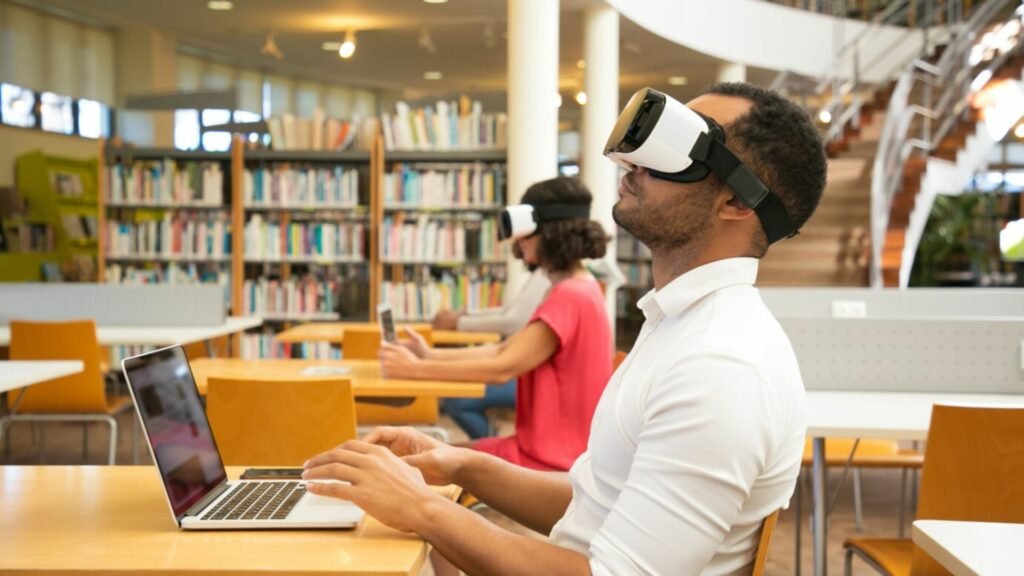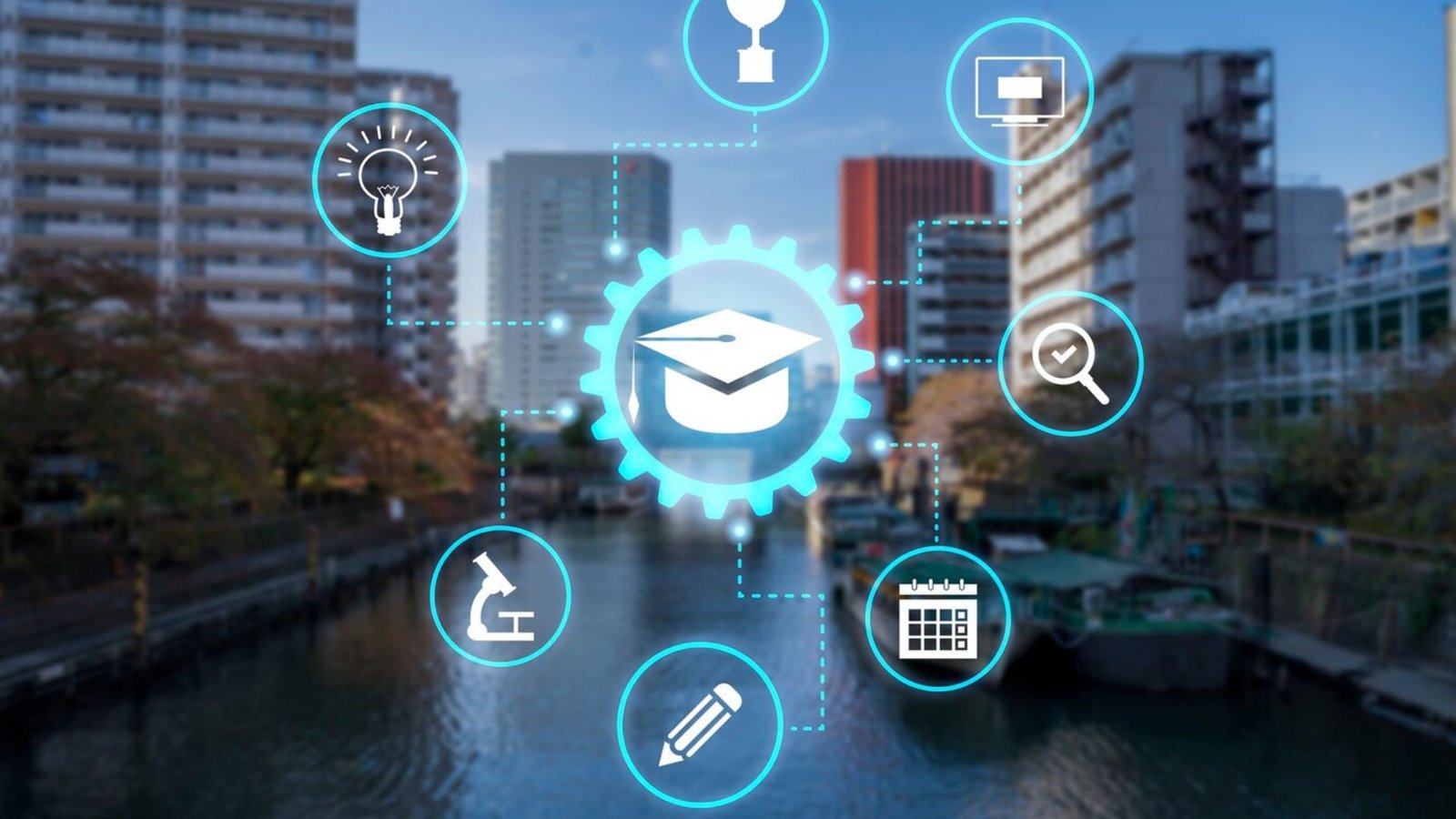
The Impact of Technology on College Education
To begin with, in the rapidly evolving landscape of education, technology has become a transformative force, reshaping the way students learn and universities operate. This article delves into the multifaceted impact of technology on college education, exploring key advancements, challenges, and the future trajectory of technology-driven learning experiences.
The Digital Classroom Revolution
Secondly, in the contemporary landscape of education, technology has ushered in a transformative era, reshaping traditional classrooms into dynamic digital spaces. The advent of digital whiteboards, online collaboration tools, and a myriad of multimedia resources has empowered educators to craft interactive and engaging lessons. This shift toward digital alternatives enables a personalized learning experience, accommodating diverse student learning styles. As teachers leverage technology to enhance content delivery and foster student participation, the boundaries of traditional education are expanding. The digital realm opens new avenues for collaboration, creativity, and accessibility, reflecting the evolving nature of education in the 21st century.

E-Learning Platforms and Accessibility
Thirdly, the surge of e-learning platforms marks a significant democratization of education, extending its reach to a global audience. To add on, platforms such as Coursera, edX, and Khan Academy provide an extensive array of courses, granting students the flexibility to learn at their own pace. This newfound accessibility is particularly transformative for non-traditional students, working professionals, and individuals in remote areas who aspire to pursue higher education. As the boundaries of traditional classrooms dissolve, e-learning platforms empower learners worldwide, fostering a culture of continuous education and skill development. The democratization of education through digital platforms heralds a new era of inclusivity, breaking down barriers to knowledge and creating opportunities for diverse learners to thrive in the evolving landscape of lifelong learning.
Virtual and Augmented Reality
Virtual and augmented reality technologies are revolutionizing education by transcending geographical constraints and offering immersive experiences for students. Through virtual campus tours, interactive simulations, and virtual laboratories, practical learning in fields such as science and engineering is significantly enhanced. These technologies effectively bridge the gap between theoretical knowledge and real-world application, providing students with hands-on experiences in a virtual environment. The ability to explore historical sites, conduct complex experiments, or engage in realistic training scenarios brings a new dimension to education. As virtual and augmented reality continue to evolve, the educational landscape is undergoing a transformative shift, offering students an enriched and interactive learning journey that extends beyond the boundaries of traditional classrooms. The integration of these technologies represents a progressive step towards fostering a dynamic and engaging educational experience for students worldwide.
Adaptive Learning Systems
Adaptive learning systems represent a cutting-edge approach to education. Additionally, harnessing the power of data and artificial intelligence to customize educational content based on individual student needs. These sophisticated systems meticulously analyze students’ progress, pinpoint areas of difficulty, and offer targeted resources or exercises to address specific learning gaps. Furthermore, by adopting a personalized approach, adaptive learning systems empower students to navigate complex concepts at their own pace. More so, cultivating a deeper and more comprehensive understanding of the material. The real-time adaptability of these systems ensures that each student receives tailored support, enhancing their learning experience and optimizing the acquisition of knowledge. As education embraces technology-driven advancements, adaptive learning systems emerge as a transformative force, reshaping traditional teaching methods and fostering a more effective and student-centric approach to learning.
Challenges in the Educational Landscape
The digital divide, disparities in access to technology, and varying levels of tech literacy among students can exacerbate educational inequalities. Educational institutions must navigate these challenges to ensure that technology enhances inclusivity rather than deepening divides.
Online Assessments and Proctoring
More so, the shift to online learning has necessitated a reevaluation of assessment methods. Additionally, online exams and assessments are becoming more prevalent, accompanied by advanced proctoring technologies. These tools monitor students remotely to maintain the integrity of assessments, but they also raise concerns about privacy and the potential for technological glitches.
The Role of Artificial Intelligence in Education
Artificial intelligence (AI) is increasingly integrated into educational technologies, providing personalized learning experiences. AI-powered chatbots assist students with queries, intelligent tutoring systems adapt to individual learning styles, and predictive analytics help educators identify students at risk of falling behind. The ethical use of AI in education is a critical consideration in its implementation.
The Future of Remote and Blended Learning
Moreover, the COVID-19 pandemic accelerated the adoption of remote learning, leading to a reevaluation of traditional teaching models. Additionally, blended learning, a combination of in-person and online instruction, is emerging as a sustainable model for the future. Flexibility in learning modalities accommodates diverse student needs and promotes lifelong learning.
Lifelong Learning and Professional Development
Furthermore, technology has facilitated a shift toward continuous learning throughout one’s career. Online courses, webinars, and micro-credentialing programs offer opportunities for professionals to upskill or reskill. The emphasis on lifelong learning aligns with the evolving demands of the job market, where adaptability and a diverse skill set are increasingly valued.
Conclusion
In conclusion, the impact of technology on college education is profound and multifaceted. As we embrace the digital future of education, it is essential to strike a balance between leveraging technological advancements and addressing associated challenges. The collaborative efforts of educators, policymakers, and technology developers are crucial in shaping an inclusive, innovative, and tech-enhanced educational landscape for the generations to come.
You might also be interested in:
- Management tips for Students
- College jobs that Won’t Break the Bank
- Get to Fully Embrace the College Experience and Journey
- How to be an Excellent Student in College: University or School